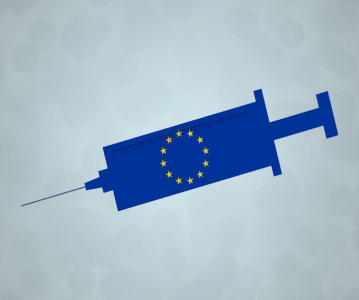Pfizer maps out plans for developing new oncology therapeutics by 2030
.png)
Pfizer dilvulges plans to investors around growing their cancer portfolio, and the drugs they will be focusing on developing after their aquisition of Seagen in 2023.
In 2023, Pfizer made a mammoth US$43 billion acquisition of Seagen, in a bid to develop its oncology therapeutic pipeline and become a leader in the field.
Now, the company has laid out their plans for the future in light of the merger in a recent investor event. Chris Boshoff, Chief Oncology Officer, announced the company’s plans for eight new cancer drugs to be developed by 2030, and other strategic priorities for the coming years. They are projecting that by 2030 Pfizer will have doubled the number of their patients from 2.3 million in 2023 to 4.6 million, that are treated with their latest cancer therapeutics.
The strategy is set to focus on four main cancer types – breast cancer, genitourinary cancer, blood cancer, and thoracic cancers – all of which they already have a commercial offering in. Pfizer is aiming to progress drugs through the development stages to approval, and is also working on getting existing drugs approved for earlier lines of treatment.
Pfizer’s main oncology therapeutic offerings, pre Seagen acquisition, were Ibrance, Xtandi and Inlyta. Sales of Ibrance and Xtandi have been declining, pushing the company to find new avenues for investment that could boost their pipeline and bring revenue back up. However, the company have not released specific projections for the next few years in their oncology offering, rather stating that they expect to have strong growth in this area.
By widening their portfolio Pfizer are hoping to expand into biologics development, rather than sticking to small molecules. The drug developers are aiming to boost their biologics revenue to make up 65% of their total revenue, from its proportion as it stands today at 6%.
Another reason to invest in novel cancer therapeutics is so that Pfizer don’t need to rely on their current drugs such as Ibrance in the future, as Ibrance nears its patent cliff within the next few years. Boshoff told investors that even with the new developments they are still expecting to see a 10% drop in breast cancer sales as a part of the total oncology sales when the patent for Ibrance runs out.
Moving on from breast cancer, Pfizer is expecting genitourinary cancer therapies to become their main revenue stream, including bladder cancer and prostate cancer therapeutics.
Source:
Fierce Pharma. Pfizer fleshes out oncology strategy, targeting 8 blockbuster cancer drugs by 2030. [Date accessed 05/03/2024] www.fiercepharma.com/pharma/pfizer-fleshes-out-oncology-strategy-targeting-8-blockbuster-cancer-drugs-2030
Related News
-
News Generics threat to Merck’s Bridion as Hikma seeks pre-patent expiry approval
Merck has disclosed they received notice from Hikma Pharmaceuticals for seeking a pre-patent expiry US FDA approval for Hikma’s generic version of Merck’s Bridion. -
News Bernie Sanders vs Big Pharma - the latest on drug price negotiations
In a hearing in front of the US Senate, three of the biggest pharmaceutical companies in America are challenged over exorbitant prescription drug prices, with Sanders claiming their actions are limiting the population's access to affordable healthc... -
News Key takeaways from Saudi Arabia's National Biotechnology Strategy
In January 2024, Saudi Arabia released its National Biotech Strategy, an ambitious plan to localise biomanufacturing, incentivise R&D and establish the Kingdom as the regional biotech leader by 2030, and an internationally recognised hub by 2040. -
News Patients vs Pharma – who will the Inflation Reduction Act affect the most?
The Inflation Reduction Act brought in by the Biden administration in 2022 aims to give better and more equitable access to healthcare in the USA. However, pharma companies are now concerned about the other potential costs of such legislation. -
News CPHI Podcast Series: What does the changing US Pharma market mean for industry and patients alike?
In this week's episode of the CPHI Podcast Series Lucy Chard, Digital Editor for CPHI Online is joined by James Manser to discuss the political and market changes in the US pharma field. -
News CPHI Barcelona Annual Report illuminates industry trends for 2024
The CPHI Annual Survey comes into it’s 7th year to report on the predicted trends for 2024. Over 250 pharma executives were asked 35 questions, with their answers informing the industry landscape for the next year, spanning all major pharma marke... -
News Which 10 drugs are open to price negotiation with Medicare in the USA?
The Centres for Medicare & Medicaid Services, under the Biden administration in the USA, has released a list of the 10 drugs that will be open to price negotiations as part of the new legislation under the Inflation Reduction Act (IRA). -
News EU Medical Devices Regulation causes unintended disappearances of medical devices for children, doctors state
Doctor groups and associations have appealed to the EU to correct the EU Medical Devices Regulation law that may cause unintended shortages of essential drug and medical devices for children and rare disease patients.
Position your company at the heart of the global Pharma industry with a CPHI Online membership
-
Your products and solutions visible to thousands of visitors within the largest Pharma marketplace
-
Generate high-quality, engaged leads for your business, all year round
-
Promote your business as the industry’s thought-leader by hosting your reports, brochures and videos within your profile
-
Your company’s profile boosted at all participating CPHI events
-
An easy-to-use platform with a detailed dashboard showing your leads and performance
.png)
.png)





